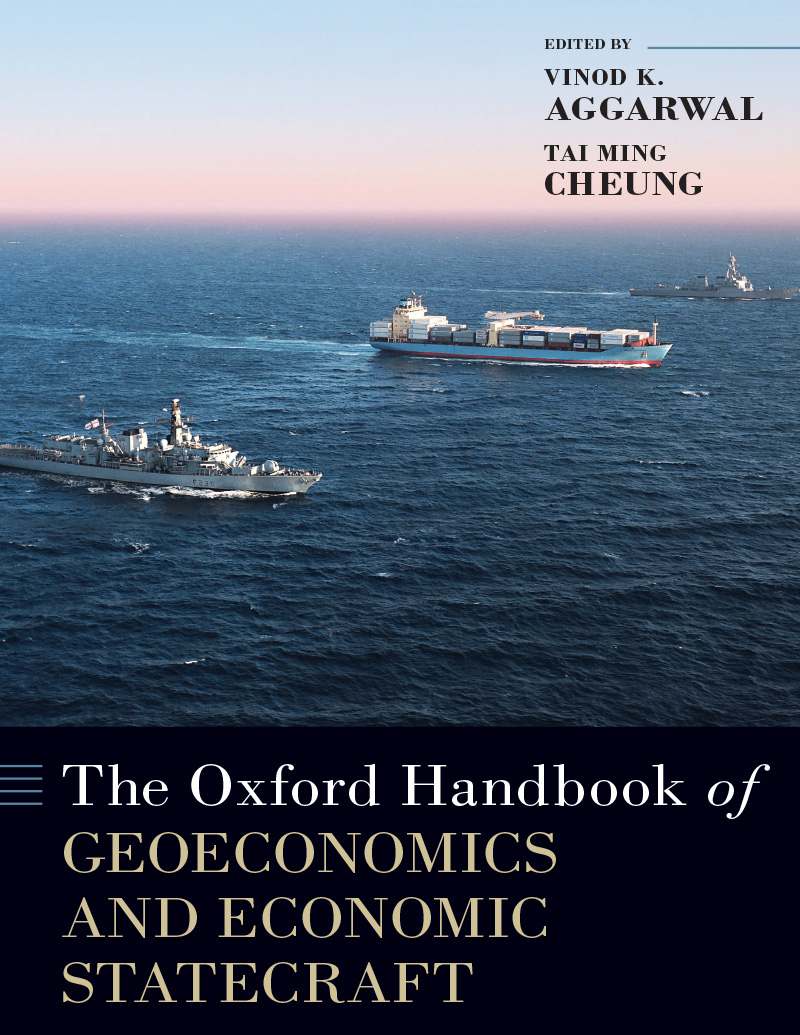The Oxford Handbook of Geoeconomics and Economic Statecraft

The Oxford Handbook of Geoeconomics and Economic Statecraft, edited by Vinod Aggarwal and Tai Ming Cheung, provides a nuanced understanding of the strategic use of economic tools to advance national interests and shape the global order in an era defined by both greater interdependence and intensifying competition.
Order your copy from Oxford University Press
In the twenty-first century, world affairs have become increasingly marked by the convergence of economics, politics, technology, and strategic concerns. Economic and technological rivalries and competition for military and strategic dominance are intensifying at the international, regional, and domestic levels.
The Oxford Handbook of Geoeconomics and Economic Statecraft, edited by Vinod Aggarwal, a professor at UC Berkeley, and Tai Ming Cheung, director of IGCC and a professor at UC San Diego’s School of Global Policy and Strategy, explores these linkages through the evolving field of geoeconomics and economic statecraft, offering a comprehensive analysis of their conceptual underpinnings, historical evolution, and contemporary implications across global regions and critical issue areas.
Production of the OUP Handbook was part of an IGCC project on “Great Power Competition in the 21st Century: The Struggle for Technological, Economic, and Strategic Supremacy” funded by the University of California Laboratory Fees Research Program.
The volume is divided into five sections. Section 1 elaborates on historical and current conceptions of geoeconomics and economic statecraft, while Section 2 explores methodological approaches, emphasizing the importance of multilevel analysis and innovative data collection. Section 3 focuses on key issue areas that are widely considered to be central to the discipline including industrial policy, trade policy, and investment as well as the use of sanctions and foreign aid as tools of economic statecraft. Section 4 examines the intersection of national security and geoeconomics, illustrating how economic concerns influence grand strategy, war financing, and sanctions. Finally, Section 5 surveys regional and national perspectives on geoeconomics and economic statecraft. Together, these analyses provide a nuanced understanding of the strategic use of economic tools in advancing national interests and shaping global order in an era defined by both increasing interdependence and deepening competition.
Visit Oxford University Press to learn more.
In addition to their chapters in the OUP Handbook, select authors have contributed related blog posts for IGCC’s Global Policy at a Glance, with insights from their chapters as well as fresh analysis:
- “Freezing Aid Will Undermine U.S. Interests” | Jonas Gamso (Arizona State University)
- “War Finance in the 21st Century: Insights from Ukraine, Syria, and Beyond” | Rosella Cappella Zielinski (Boston University) and Patrick E. Shea (University of Glasgow)